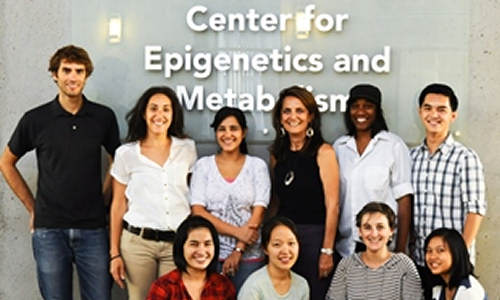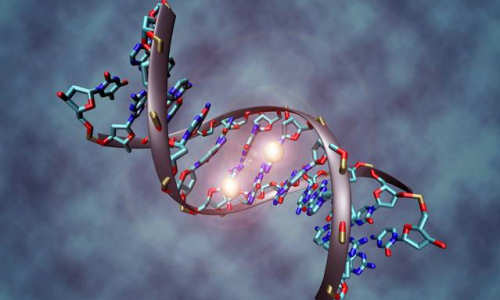Dysfunction in dopamine signaling profoundly changes the activity level of about 2,000 genes in the brain’s prefrontal cortex and may be an underlying cause of certain complex neuropsychiatric disorders, such as schizophrenia, according to UC Irvine scientists.
This epigenetic alteration of gene activity in brain cells that receive this neurotransmitter showed for the first time that dopamine deficiencies can affect a variety of behavioral and physiological functions regulated in the prefrontal cortex.
The study, led by Emiliana Borrelli, a UCI professor of microbiology & molecular genetics, appears online in the journal Molecular Psychiatry.
“Our work presents new leads to understanding neuropsychiatric disorders,” Borrelli said. “Genes previously linked to schizophrenia seem to be dependent on the controlled release of dopamine at specific locations in the brain. Interestingly, this study shows that altered dopamine levels can modify gene activity through epigenetic mechanisms despite the absence of genetic mutations of the DNA.”
Dopamine is a neurotransmitter that acts within certain brain circuitries to help manage functions ranging from movement to emotion. Changes in the dopaminergic system are correlated with cognitive, motor, hormonal and emotional impairment. Excesses in dopamine signaling, for example, have been identified as a trigger for neuropsychiatric disorder symptoms.
Borrelli and her team wanted to understand what would happen if dopamine signaling was hindered. To do this, they used mice that lacked dopamine receptors in midbrain neurons, which radically affected regulated dopamine synthesis and release.
The researchers discovered that this receptor mutation profoundly altered gene expression in neurons receiving dopamine at distal sites in the brain, specifically in the prefrontal cortex. Borrelli said they observed a remarkable decrease in expression levels of some 2,000 genes in this area, coupled with a widespread increase in modifications of basic DNA proteins called histones – particularly those associated with reduced gene activity.
Borrelli further noted that the dopamine receptor-induced reprogramming led to psychotic-like behaviors in the mutant mice and that prolonged treatment with a dopamine activator restored regular signaling, pointing to one possible therapeutic approach.
The researchers are continuing their work to gain more insights into the genes altered by this dysfunctional dopamine signaling.
Story Source:
The above story is based on materials provided by UC Irvine.





